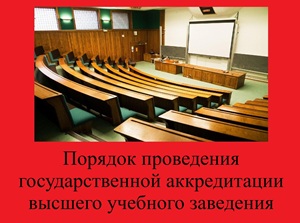
Understanding the Importance of ВАК Accreditation
In the context of higher education in Russia, the term входит в перечень вак carries significant weight. This accreditation serves as a crucial indicator of quality and reliability for educational institutions and their programs. The ВАК (Higher Attestation Commission) plays a pivotal role in regulating the processes surrounding the awarding of academic degrees and titles. With rigorous criteria and standards, the ВАК ensures that only institutions meeting the established benchmarks receive acknowledgment, which ultimately enhances the academic landscape.
The Criteria for ВАК Inclusion
To be recognized as a ВАК accredited institution, several stringent criteria must be satisfied. These criteria revolve around the quality of education, research outputs, faculty qualifications, and institutional resources. Institutions need to demonstrate a commitment to academic excellence through various means, including:
- Reduction of student-to-faculty ratios to ensure personalized attention.
- Retention of qualified faculty members with significant academic and research experience.
- Implementation of innovative teaching methods that engage students effectively.
- Availability of adequate funding and resources to support research initiatives and academic programs.
Meeting these requirements not only solidifies a university’s reputation but also assures prospective students of the quality of their education. A high level of institutional credibility is essential for graduates as they enter the competitive job market.
The Relevance of ВАК Accreditation for Students
The presence of ВАК accreditation holds immense value, especially for students contemplating their academic futures. Attending an institution that входит в перечень вак can significantly enhance their prospects post-graduation. Employers often look for degrees from accredited universities, associating ВАК accreditation with rigorous academic standards and a commitment to quality education. Consequently, graduates from ВАК accredited programs frequently report higher employment rates and better job prospects compared to their peers from non-accredited institutions.
The Role of ВАК in Research Development
Another critical aspect of ВАК accreditation is its influence on research activities within institutions. The ВАК encourages universities to foster a research-oriented environment by supporting innovative projects and promoting scholarly collaborations. This emphasis on research not only enhances the educational experience but also contributes to the advancement of knowledge in various fields. Institutions recognized by the ВАК are often at the forefront of groundbreaking studies, considerably impacting both national and international academic communities.
Impact on Institutional Growth
An institution that successfully meets the ВАК criteria has a substantial competitive advantage. They can attract more students, secure funding for research, and build partnerships with other educational organizations. Moreover, ВАК accreditation opens doors for international collaborations and academic exchanges, enhancing a university’s global presence and prestige. Ultimately, being on the ВАК list is not just a badge of honor; it is a catalyst for growth, innovation, and academic success.
Future Trends in ВАК Accreditation
As educational needs evolve, so too do the frameworks surrounding ВАК accreditation. The commission continuously reviews its evaluation processes to ensure they remain relevant in a rapidly changing educational landscape. Future trends may include a greater emphasis on online education, addressing diverse learning modes, and adapting to technological advancements in teaching. Institutions are encouraged to remain flexible and forward-thinking in their approaches to education and research if they wish to maintain their ВАК accreditation.







